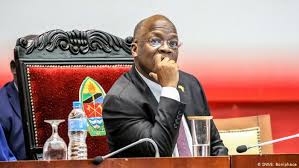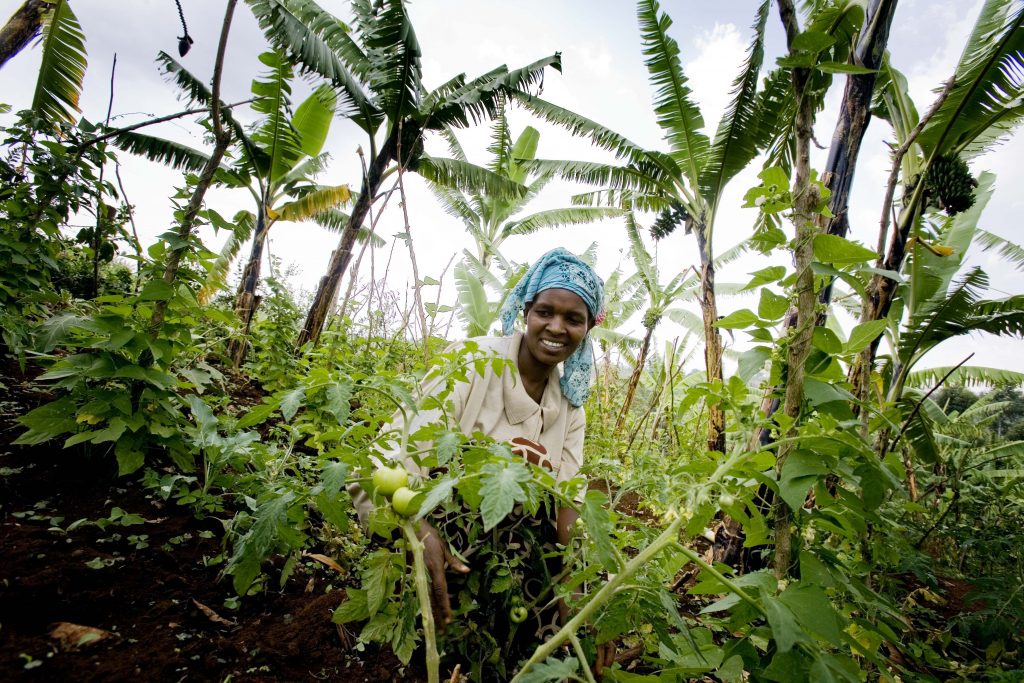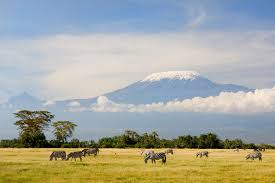- How transition finance can catalyse Africa’s green industrial revolution
- Stanbic PMI Report: Mixed performance as Kenya’s agriculture, construction offset manufacturing decline
- Uganda’s land management gets a tech makeover to boost transparency
- Nigeria’s output dips fastest in 19 months on a sharp rise in costs
- Apple faces growing backlash over Congo exploitation
- Why East Africa is staring at higher wheat prices in 2025
- Nairobi Gate SEZ pumps $7 million into Kenya’s agro-processing industry
- What impact will the US election have on Africa?
Browsing: Development
That’s right—it is not on mere goodwill that the magnanimous sums are dished out; it is a two-way street. We give you this amount if you do this for us. This give and take barter in economics is known as conditionality.
To put it in the words of Kjell J. Havenevik, author of ‘The IMF and the World Bank in Africa (Conditionality, Impact and Alternatives), ‘Conditionality is the term given to the conditions relating to macro-policy elements which countries have to meet in order to get access to international loans and/or aid.’
We in the journalism science get information about the big sums ‘handed’ to African countries; what we usually do not get through the all-too-frequent press releases is the conditionality that comes with that money.…
[elementor-template id="94265"]
Innovation is ferrying Africa to a brighter more successful future, a future of technology and digital realities in everyday life. From mobile Apps that allow John in the city centre to Dr. Atish Shah’s affordable battery-powered prosthetic arm that even the least fortunate can afford, innovation is defining Africa’s reality.
African Innovation: Tanzanian Doctor creates mobile-battery powered prosthetics
Tanzania’s Dr. Atish Shah has been recognized the World over for his innovation the Mkono-1, a 3D-printed functional prosthetic hand. Dr. Shah a biomedical engineering Masters candidate says the design was made with the average Tanzanian in mind. It is affordable and functional giving amputees an inexpensive solution for improved mobility and independence.
The prosthetic hand is charged by a simple mobile phone battery, bringing a revolution to an otherwise very expensive industry. In Tanzania, prosthetics are unaffordable for those in middle and low-income communities, and no other battery-powered prosthetics are …
Five years ahead of schedule Tanzania achieved middle income status. To be exact, the World Bank changed it's classification from ‘a low-income to a lower-middle-income country.’
East Africa’s sleeping giant is finally awakening. Right in the middle of the global Coronavirus pandemic, Tanzania has provided a rare piece of good news — on 1 July 2020, the country achieved its middle-income vision five years ahead of schedule. – The Africa Report
The World Bank’s news was announced to the country by it’s President John Magufuli bringing even more recognition to the achievements of Tanzania’s fifth administration.
In his twitter handle, the president posted the new country status emphasizing the achievement was accomplished five years ahead of time.
“Today, July 1, 2020, the World Bank announced that Tanzania has become a middle-income country. I congratulate my Tanzanian colleagues for this achievement. This is a big feat that we have accomplished and…
There has not been a more demanding time for Africa to adopt modern agriculture methods than now. In the wake of the Covid-19 pandemic, food security in Africa is threatened at all levels and farming activities have nearly been brought to a standstill.
African farmers lost market as borders closed and flights were grounded to curb the spread of Covid-19. As a result the, pandemic severely affected the agriculture value chains from supply of inputs to transporting the end product.
Africa now finds itself more in need of modern farming methods to increase production in a cost effective manner. However, while attempting to increase production, African farmers must also mitigate the effects of climate change by adopting climate smart agriculture.
There is need to use improved seed varieties even in the backdrop of the side effects of using hybrid seeds. Improved seed varieties are more resistant to disease and poor …
When rich folks want to climb to the highest peak of Africa, they no longer have to scrimmage with the rest of us along the old narrow foot tracks, no, they now have an exclusive route cut just for Very Important People (VIP).
In an unprecedented move, the government of Tanzania has decided to construct 25-kilometre of road up Mount Kilimanjaro in a bid to provide for the needs of the World’s richest.
The features of this VIP route have not been made public but it is expected to be exclusive, private and only for select few who can afford it. Tanzania, has some of the World’s must see tourist attractions that attract some of the World’s elite.
Arguably, a Prince so and so along with CEOs of multibillion dollar companies as well a Hollywood famous faces, would like to visit these attractions without attracting too much attention.
Also Read:
…Tanzania relays heavily on the tourism sector for its foreign exchange earnings and to save this vital sector, the country has announced plans to have all hotels and other tourist facilities across the country bear Covid-19 certificates that basically declare the facility a Covid-19 free area.
According to the Bank of Tanzania (BoT) the tourism sector is Tanzania’s top foreign exchange earner clocking USD 2.44 billion last year. It only makes sense that the country would do all in its power to save the sector in the wake of the pandemic.
The move, to have tourism facilities display Covid-19 free zone poster is expected to build the trust of tourists and allow them to regain confidence in the hotels or related facility.
The said ‘posters’ will be the kind that health officers place in the windows of restaurants abroad with the grade of the said hotel in full display. The …
Even as share values for US futures on crude oil prices hit rock bottom, spotting a worrisome negative figure (-4.0 USD) there are still several functions that claim the crush of oil prices in the US and around the World will have no effect on stock shares in Tanzania, the numbers are giving a different story. Lets start with the optimistic side.
As US futures for oil price continue to free fall some are of the view that it will have no effect on Tanzania’s sole bourse, the Dar es Salaam Stock Exchange (DSE). Why? Well, simple, most African countries, Tanzania included, are oil importers so, the fall of oil prices will mean positive balance of payments.
In turn, favourable balance of payment means good exchange rates of the shilling for the dollar, again another plus for the shilling. Good exchange rates translates to higher value of the shilling and …
Members of Parliament in Tanzania are urging the government to consider giving tax breaks to businesses in a bid to help them stay afloat.
Alternatively, the government is encouraged, through the Central Bank, to scrap interest on loans so that borrowers do not fall into default.
At the moment, despite the global slowdown, businesses are still operational but they are operating way below their year revenue projections. Already, at the start of the second quarter, the country is facing potentially huge loan defaults by both large corporations as well as small and medium sized companies.
Big businesses are now turning to the government to intervene. While the Central Bank, the Bank of Tanzania (BoT) has already issued a stimulus package for commercial banks, the Tanzania Private Sector Foundation (TPSF) is working on an arrangement to save large borrowers from mega defaults that would in effect ripple throughout the economy.
Commercial …
Once upon a time in Kenya, tea and coffee were the big players, the rulers of the country’s agribusiness the top foreign exchange earners.
However with time passing the crops contribution to annual earnings kept falling, because the farmers were simply not getting paid in time. The peasants’ payment was little and delayed.
As a result, production and quality of the coffee and tea out remained poor and could not earn the country its potential income from the sector.
Now the government has set aside USD15 million to revitalize the sector. The funding is from the World Bank which is meant to compliment another USD30 million that Kenya set aside back in January.
What is to be learnt here is not just the will to revitalize the coffee and tea sectors but also the willingness to admit what the problem was in the first place, slow and low payment of …
The falling price of crude oil spells good favour for importers in Africa. The price of crude has been on a steady drop despite attempts by producers to cut output. As a result, many African countries are taking advantage of the situation and stock piling their reserves.
Take for instance the case of East Africa, crude oil represents more than 20 percent of Tanzania’s annual imports. So a drop in price of crude means the country can afford to buy more and reserve for future use. However no official report has been issued as to the government policy on the matter.
The issue that arises here is the matter of crude versus refined oil. Africa, Tanzania included, imports refined oil which is more costly than crude but with falling prices of crude then follows that even the price of refined oil has taken a dive
As such, the country is …











